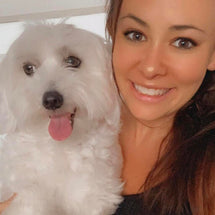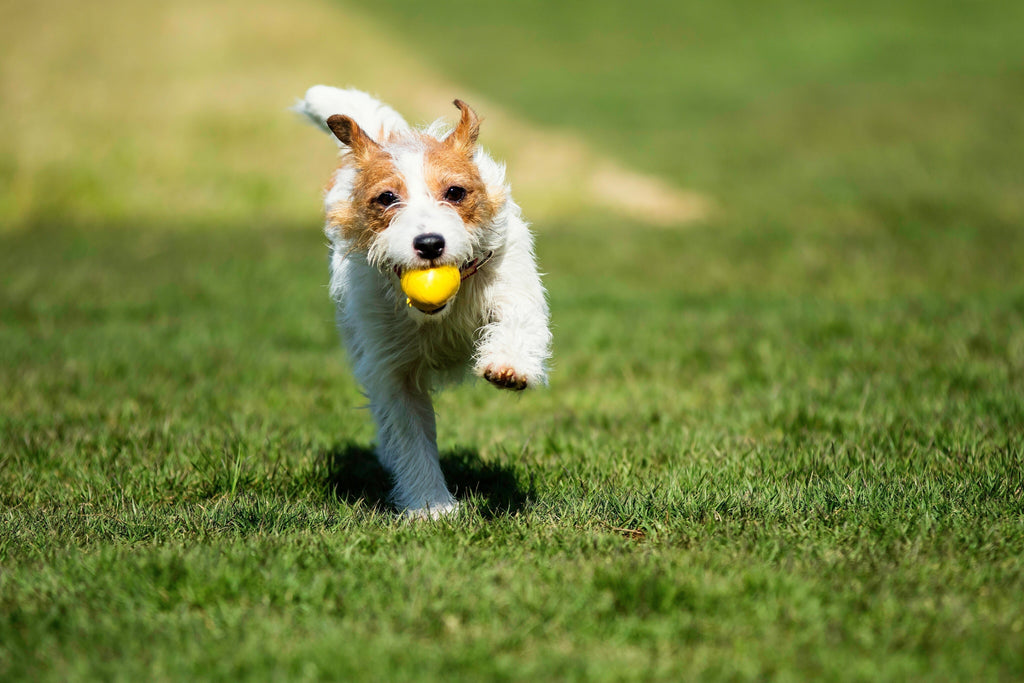Managing your Growing Pup's Food Portions!
Puppies are bundles of joy, energy, and curiosity. As pet parents, we want to ensure they have the best start in life, and proper nutrition plays a pivotal role in their growth and development. Understanding their nutritional requirements, managing their portions, maintaining their ideal weight, and choosing the right diet are essential steps in raising a happy and healthy pup.
Dogs, like humans, are individuals with unique characteristics and requirements, and their dietary needs vary depending on factors such as breed, age, size, and activity level. Each dog breed has its own distinct traits and energy levels, which directly influence their calorie requirements. For example, small breeds typically have higher metabolic rates and may require more calories per kilogram of body weight compared to larger breeds.
Nutritional Requirements of Puppies

Puppies have unique nutritional needs compared to adult dogs. They require a balanced diet rich in essential nutrients to support their rapid growth, development, and energy levels. Key nutrients include:
- Protein: Essential for muscle development and overall growth. Protein for puppies should be a minimum of 22.5%.
- Fat: Provides energy and supports healthy skin and coat. Fat content for puppies should be a minimum of 8.5%.
- Calcium and phosphorus: Vital for bone formation and skeletal development. Calcium: Phosphorus ratio should be a minimum of 1:1, ranging from 1.2 - 2.5% Calcium and 1.0 - 1.6% Phosphorus.
- Vitamins and minerals: Support various bodily functions and immune health. Puppies require higher Sodium, Chloride, Iron, copper, manganese, and zinc then adults.
When choosing a puppy food, opt for high-quality formulations which are suitable for puppies, like Petzyo! These foods are formulated to meet the specific nutritional requirements outlined by organizations such as the Association of American Feed Control Officials (AAFCO).
How do I know if I should feed more or less to my Puppy?
Dog food labels can only provide guidance on how much to feed your puppy, based on an an educated estimate combining global nutritional recommendations, nutritional expertise and individual formulation calorie content. While these guidelines offer a starting point, knowing whether to adjust your puppy's food intake requires ongoing monitoring of their growth, body condition, and energy levels. You should weigh your dog every week for the first few months, and then every month until they reach adulthood. By regularly assessing your puppy's development and behavior, you can determine if they require more or less food.
1. Growth Rate:
Monitor your puppy's growth rate over time. Puppies should steadily gain weight as they grow. Usually they will gain between 1-1.5kg per month depending on breed. If your puppy is not gaining weight as expected or is lagging behind in growth milestones, they may need more food.
2. Body Condition:
Assess your puppy's body condition regularly. You should be able to feel their ribs easily without them being too prominent. Your puppy should also have a defined waist when viewed from above. If you are unable to feel your puppy's ribs or their waistline is not well-defined, they may be underweight and require less food. Conversely, if your puppy is becoming overweight with excessive body fat, they may need less food.
3. Energy Levels:
Pay attention to your puppy's energy levels and behavior. A well-fed puppy should have good energy levels, be playful, and show interest in activities. If your puppy is lethargic, lacks energy, or seems disinterested in food, they may not be receiving enough calories.
4. Food Consumption:
Monitor how much food your puppy consumes during meals. If they consistently leave food in their bowl or appear hungry shortly after eating, they may need a larger portion size. On the other hand, if your puppy consistently leaves food uneaten or shows disinterest in meals, they may be receiving too much food.
5. Consult Your Veterinarian:
If you're unsure whether to adjust your puppy's food intake, consult with your veterinarian. They can assess your puppy's growth, body condition, and overall health to provide personalized recommendations for feeding adjustments.
On average how much does a growing puppy eat per day?

The amount of food a growing puppy eats per day can vary widely depending on factors such as their age, breed, size, activity level, and metabolism. However, as a general guideline:
- Small Breed Puppies typically eat between 0.1 kg to 0.45 kg (1/2 cup to 1 cup) of high-quality dry puppy food per day.
- Medium Breed Puppies s may consume around 0.45 kg to 1 kg (1 to 2 cups) of dry puppy food per day.
- Large Breed Puppies may eat approximately 1 kg to 1.8 kg (2 to 4 cups) of dry puppy food per day.
-
Giant Breed Puppies have higher calorie needs due to their rapid growth rate. They may require anywhere from 1.8 kg to 3.6 kg (4 to 8 cups) of puppy food per day
* Each type and brand of dog food varies in calorie content per weight. To determine the appropriate amount to feed your puppy, calculate their calorie requirements and divide by the specific food's calorie content.
Importance of portion control and managing ideal weight:
Studies suggest that 22% of dog parents overfeed their dogs and only 20% measure the amount of food they are giving! Proper portion control is crucial for maintaining your puppy's ideal weight and preventing obesity, which can lead to numerous health issues such as joint problems, digestive upset, allergies and behavioral problems.
It is important to follow the feeding guidelines provided on the puppy food packaging based on your pup's age, weight, and activity level. Monitor your puppy's body condition regularly and adjust portions accordingly.
How often should I feed my pup each day?
The frequency of feeding your puppy depends on their age and developmental stage.
- Up to 3 months old: Puppies younger than three months old typically need to eat more frequently due to their small stomach capacity and high energy needs. It's recommended to feed them around 3 to 4 times per day, spaced evenly throughout the day.
- 3 to 6 months old: As your puppy grows, you can gradually reduce the frequency of feedings. Aim for 3 meals per day during this stage, providing them with enough nutrition and energy to support their growth and development.
- 6 months to 1 year: Once your puppy reaches six months of age, you can transition to feeding them twice a day. By this age, most puppies can handle larger meals spaced out evenly throughout the day.
-
Over 1 year old: Once your puppy reaches adulthood (around 1 year old, depending on the breed), you can continue feeding them twice a day. Some larger breeds may benefit from continuing to eat twice a day until they are fully matured, around 18-24 months old. Some studies have shown that feeding your healthy adult dog once per day though results in better health!
Why do I need to feed my puppy frequent small meals:

1. Stomach Size:
A puppy's stomach size can vary depending on their breed, age, and individual characteristics. However, as a general guideline, a stomach can hold 1-3% of their body weight so in order to get the nutritional requirements met each day, they need to be fed frequently.
2. Stable Blood Sugar Levels:
Dividing their daily food intake into several smaller meals helps maintain stable blood sugar levels throughout the day, preventing spikes and crashes in energy levels.
3. Digestive Health:
Smaller, more frequent meals are easier for puppies to digest, reducing the risk of digestive upset such as vomiting or diarrhea.
4. Prevents Overeating:
Puppies are prone to overeating, especially if food is available all day (free-feeding). Offering multiple meals allows for better portion control, preventing excessive calorie intake and potential obesity.
5. Supports Growth:
Puppies have high energy needs to support their rapid growth and development. Providing regular meals ensures they receive a consistent supply of nutrients to fuel their growth.
6. Establishes Routine:
Feeding your puppy at set meal times helps establish a routine, which can aid in house-training and behavior management.
| Breed Size | Life stage | Meals per Day |
| Teacup to Small | 8 - 12 Weeks 3 -6 Months 6 - 12 Months Adult |
4 3 3 1-2 |
| Medium to Large |
8 - 12 Weeks 3 -6 Months 6 - 12 Months Adult |
3 3 2 1-2 |
| Large to Giant |
8 - 12 Weeks 3 -6 Months 6 - 12 Months Adult |
3 2 2 1-2 |
Identifying the Ideal Weight:
Determining your puppy's ideal weight depends on factors such as breed, age, and body composition. Consult your veterinarian to assess your puppy's growth rate and overall health. Your vet can provide guidance on what constitutes a healthy weight range for your specific breed.
Signs that your puppy is at a healthy weight include:
- A defined waistline when viewed from above.
- Ribs that can be felt easily with gentle pressure but not visible.
- Energy levels appropriate for age and breed
Why Choose Petzyo to feed your Pup:
When it comes to nourishing your puppy, Petzyo is an excellent option for you pup! All our formulations both Dry Dog Food and Raw Dog Food are suitable for all lifestages and breeds!
Petzyo's formulations contain a high protein content ranging from 28% to 30% (Kibble) and 48-55% (Raw), ensuring your puppy receives the essential building blocks for healthy growth and development. Our recipes are also meticulously developed to maintain an optimal calcium-to-phosphorus ratio crucial for the healthy growth and development of puppies, particularly for their skeletal health. Beyond these nutritional fundamentals, Petzyo's formulas go above and beyond by exceeding AAFCO minimum requirements, with both essential and non essential vitamins and minerals vital for your puppy's overall well-being.
To support you as a pup parent, Petzyo provides convenient online serving guides, empowering pet owners to effortlessly manage their puppy's weight and portion control.
Proper nutrition is the cornerstone of a puppy's health and well-being. By understanding their nutritional requirements, managing their portions, maintaining their ideal weight, and selecting the right diet, you can give your puppy the best possible start in life.






